Sale!
MULLA’s COMMENTARY ON LAW OF EVIDENCE ( IN TWO VOLS)
₹3,746.00
In pursuance of providing better service to legal world and due to massive developments in Law of Evidence, we resolve ourself to illuminate the efforts of Mulla in limelight, and to acknowledge his erudite efforts in revamping C.D. Field’s Evidence, that’s why instant treatise goes to his credit as Mulla’s Law of Evidence.
‘Evidence’ is information which may be used to prove the existence: of a fact in issue or a collateral fact or to disprove a fact in issue or collateral fact. The requisite evidence must be relevant, must be admissible and the Court of fact must consider the evidence to have weight. Moreso, irrelevant evidence will never be admissible, However, just because evidence is relevant it does not mean that it is automatically admissible. So for so, admissibility is also a question of law for the Judge to determine.
Rules of evidence transcend all aspects of the trial stage of proceedings. They govern who has to prove what in a trial is burden of proof and the level to which those facts have to be proved i.e., standard of proof. The Law of Evidence also provides for what evidence can be. tendered before the Court i.e., by the rules relating to relevance and admissibility of the format in which it is presented to the Court of fact and the reasons why it may be adduced i.e., what evidence goes towards proving or disproving. Apart from that the law in hand also dictate the type of questions which may be asked of a particular witness depending upon the party calling them. The Law also safeguards vulnerable witnesses in order to maximise the quality of their evidence. A fact in issue for material fact or factum propandum, in a case is a fact which it is necessary for the prosecution in criminal proceedings or claimant in civil proceedings to prove if it is to succeed with its case. In a Criminal Trial, the burden of proof is usually on the prosecution, so the prosecution must prove the elements of the offence that the defendant is accused of as well as disprove the defence that he raises. Therefore, the facts in issue. a criminal case are all of the elements of the offence and defence that are in dispute as well as the identity of the defendant. A relevant fact or factum probans is a fact which is not a fact in issue, but is a fact which tends to prove or disprove a fact in issue. In a criminal case a relevant fact would be the existence or non-existence of motive of the defendant. The existence of a motive is not a fact in issue because it is not a requisite element of any criminal offence, i.e., it does not form part of the actus reus or mens rea elements of a criminal offence, but it is a relevant fact, because motive tends to prove a fact in issue i.e., that the defendant performed the actus reus of the offence charged with the necessary mens rea.
Direct evidence is evidence which directly proves or disproves a fact in issue. For instance, direct evidence might be the oral testimony of a witness given under oath. The opinion of a witness is not admissible evidence and a witness is only permitted to give evidence as to what they directly perceived. On the other hand, circumstantial evidence does not directly prove or disprove a fact in issue. Ipso facto, circumstantial evidence is evidence of a relevant fact from which the existence or non-existence of a fact in issue can be inferred. Testimony refers to the evidence given by a witness from the witness-box in Court or in a witness statement which is read to the Court. On the contrast, heaving is an out-of-Court statement which is adduced to prove truth of its contents. In criminal proceedings hearsay is generally in admissible, however, in civil proceedings hearsay is generally admissible.
The authors have done their best in presenting the Prevailing Law with all niceties and with all legal and courtroom developments. Every provision of law and its intricacies is well annotated. A prolific Subject Index is also appended for ready references. May this Classic Version of Law of Evidence enjoys all success!
Additional information
| Binding | Hardcover |
|---|---|
| Book author | DR AS MULLA & DR AC AGGARWALA |
| Edition | 15th |
| ISBN | 9.78939E+12 |
| Publication | DELHI LAW HOUSE |
| Year of Publication | 2022 |

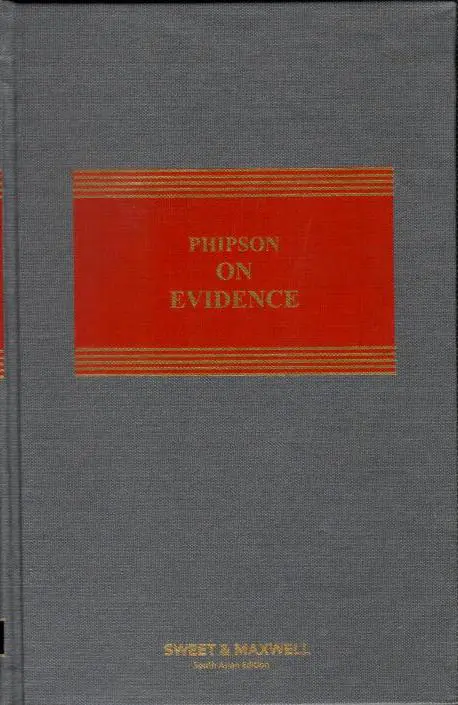
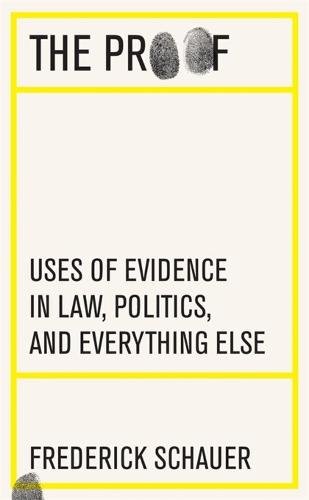
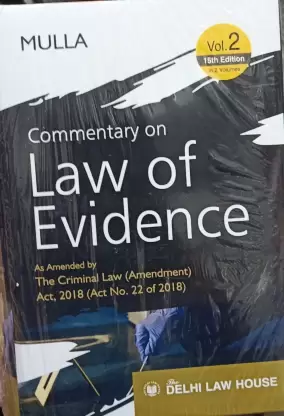
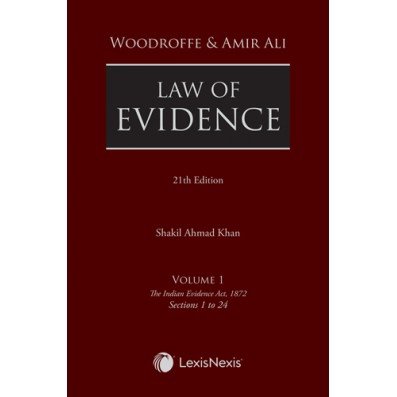
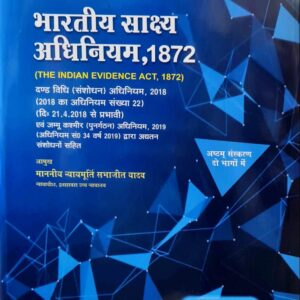
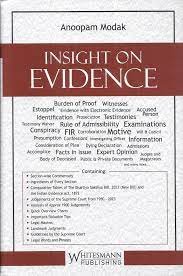
Reviews
There are no reviews yet.